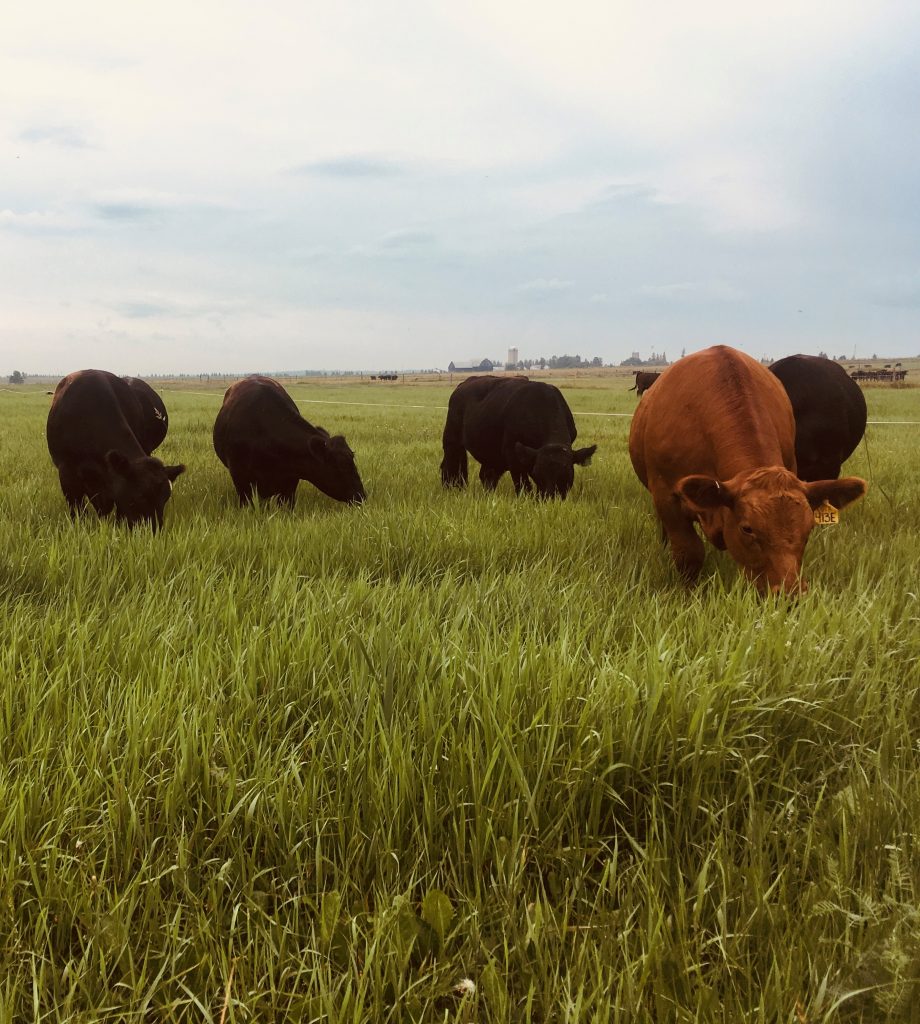- Existing pasture left as-is.
- Sod-seeded grass and trefoil mix
- Sod-seeded grass and alfalfa mix
- Pre-sprayed with glyphosate and seeded with grass and trefoil mix
- Pre-sprayed with glyphosate and seeded with grass and alfalfa
The Ontario Beef Research Station (OBRC) – New Liskeard is entering their final year of a three-year grazing trial to examine the effects of pasture management on carbon sequestration, soil health and forage productivity for optimizing performance using sustainable production practices.
The overall goal of this study is to investigate how pasture management strategies affect sustainable beef production through the use of comprehensive pasture systems. Researchers hope the results will address beef producers’ cost-of-production concerns along with consumers’ environmental and social concerns regarding beef production.
In New Liskeard, 120 acres of tile-drained pasture have been subdivided into fifteen eight-acre fields. This layout will allow researchers to examine the effects of renovating established pasture with the following five treatments:
